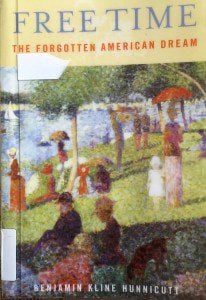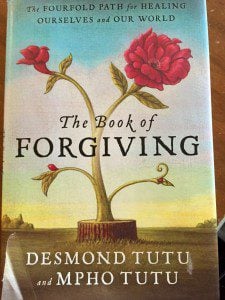Spiritual Practice I: Visio Divina
To begin to reflect on this scripture, I invite you first to slow down. Take three deep breaths. And gaze softly at Robert Lentz’s icon “Christ in the Margins.”
What resonates with you most strongly about this picture?
What word, phrase, image, or emotion does this image trigger in you?
What surprises, excites, or disturbs you about this representation?
The name for this icon is “Christ in the Margins,” echoing the call in Matthew 25 to see Christ in the “least of these.”
Some of the common prompts viewers are given when beholding this image are:
The icon does not make clear which side of the fence Christ is on. Is he imprisoned or are we? Through our cultural institutions and personal lives we all place barriers between ourselves and true happiness. We and our institutions also try to imprison Christ in various ways, to tame him and the dangerous memories he would bring us of our goals and ideals.
How does this spending time with this icon impact your understanding of this week’s scripture?
(For more on spiritual practices related to the visual arts, see my previous post on “Spiritual Practice: ‘Visio Divina.'” Additionally, if this icon resonates with you, a large collection of Robert Lentz’ iconography is available for purchase online at Trinity Stores: Religious Artwork & Icons and similar sites.)
Spiritual Practice II: Biblical Commentary
One of the many reasons this week’s scripture is important to me is that when I was a senior in college the chaplains at my soon-to-be alma mater asked me to read this scripture as the Gospel Lesson at my undergraduate baccalaureate service. I was struck that the chaplains — after decades of ministering to college students and of planning baccalaureate services — would chose Matthew 25 (of all the possible Gospel readings) as part of their “Final Thoughts,” “Final Commissioning,” or “Final Blessings” for the graduates and their families.
As I practiced reading the verse aloud the day before graduation, the profound appropriateness of the verse stood out to me. What better verse to offer to graduates of a private Liberal Arts college? Our final papers were graded, and our degrees were freshly printed and ready to be handed to us as we walked across the stage. For a confluence of reasons, we were the beneficiaries of tremendous social and educational privilege, ready to move on to the next stage in our lives. As we prepared to ‘move up’ in the world, the chaplains took one last chance to remind us of the many people who were not fortunate enough to have the luxury of a four year college education. They pointed us to Matthew 25.
If you look at the full context of this passage, Jesus seems to be saying that if there is any sort of “Final Judgment,” then the criteria on which you will be judged will not be what you know or what you say you believe, but rather what you have actually done (or neglected to do) for the less fortunate — specifically, whether you have helped feed the hungry, give drink to the thirsty, welcome the stranger, clothe the naked, and visit the sick and imprisoned (practices that are known as the “Traditional Works of Mercy.” Indeed, Jesus seems to be promising — to those of us born centuries too late to meet the historical Jesus in person — that the closest we can come to a transformative face-to-face encounter with Jesus is to aid and be fully present to poor and marginalized. To adapt Jesus’ words, “Truly I tell you, however you treat the least of my sisters or brothers is how you have treated me.”
In selecting Matthew 25 as the Gospel Lesson for our baccalaureate service, the chaplains were giving what has been called a “Franciscan Blessing.” A Franciscan Blessing is a benediction in the spirt of St. Francis of Assisi who famously gave up his inheritance to serve the poor. Here is one example of a Franciscan blessing from the twentieth century:
May God bless you with discomfort at easy answers, half truths, and superficial relationships, so that you may live deep within your heart.
May God bless you with anger at injustice, oppression, and exploitation of people, so that you may work for justice, freedom and peace.
May God bless you with tears to shed for those who suffer from pain, rejection, starvation and war, so that you may reach out your hand to comfort them and to turn their pain into joy.
May God bless you with enough foolishness to believe that you can make a difference in this world, so that you can do what others claim cannot be done.
(Note: If anyone knows the author of this Franciscan Blessing, please let me know in the Comments section, and I will add an attribution.)
Spiritual Practice III: Speaking in Parables
Related to this challenging blessing, I invite you to consider the following story that is written in the spirit of Matthew 25. (Note: This story is adapted from the Prologue of M. Scott Peck’s The Different Drum: Community Making and Peace; however, the story’s original author is unknown and there are many similar versions in circulation.) The story concerns a monastery that had fallen upon hard times:
Once a great order, as a result of waves of anti-monastic persecution in the seventeenth and eighteenth centuries and the rise of secularism in the nineteenth, all its branch houses were lost and it had become decimated to the extent that there were only five monks left in the decaying mother house: the abbot and four others, all over seventy in age. Clearly it was a dying order.
In the deep woods surrounding the monastery there was a hermitage. As the abbot agonized over the imminent death of his order, it occurred to him to visit the hermitage and ask if by some possible chance the hermit could offer any advice that might save the monastery.
The hermit welcomed the abbot at his hut. But when the abbot explained the purpose of his visit, the hermit could only commiserate with him: “I know how it is,” he exclaimed. “The spirit has gone out of the people. It is the same in all the nearby towns. So the old abbot and the hermit commiserated together. The time came when the abbot had to leave. They embraced each other. “It has been a wonderful thing that we should meet after all these years,” the abbot said, “but I have still failed in my purpose for coming here. Is there nothing you can tell me, no piece of advice you can give me that would help me save my dying order?” “No, I am sorry,” the hermit responded. “I have no advice to give. The only thing I can tell you is that the Messiah is one of you.”
When the abbot returned to the monastery his fellow monks gathered around him to ask, “Well what did the hermit say?” “He couldn’t help,” the abbot answered. “We just commiserated and read the scriptures together. The only thing he did say, just as I was leaving — it was something cryptic — was that the Messiah is one of us. I don’t know what he meant.”
In the days and weeks and months that followed, the old monks pondered these words and wondered whether there was any possible significance. The Messiah is one of us? Could he possibly have meant one of us monks here at the monastery? If that’s the case, which one?
Do you suppose he meant the abbot? Yes, if he meant anyone, he probably meant the Abbot. He has been our leader for more than a generation.
On the other hand, he might have meant Brother Thomas. Certainly Brother Thomas is a holy man. Everyone knows that Thomas is a man of light.
Certainly he could not have meant Brother Elred! Elred gets crotchety at times. But come to think of it, even though he is a thorn in people’s sides, when you look back on it, Elred is virtually always right. Often very right. Maybe the hermit did mean Brother Elred.
But surely not Brother Phillip. Phillip is so passive, a real nobody. But then, almost mysteriously, he has a gift for somehow always being there when you need him. He just magically appears by your side. Maybe Phillip is the Messiah.
Of course the hermit didn’t mean me. He couldn’t possibly have meant me. I’m just an ordinary person. Yet supposing he did? Suppose I am the Messiah? O God, not me. I couldn’t be that much for You, could I?
As they contemplated in this manner, the old monks began to treat each other with extraordinary respect on the off chance that one among them might be the Messiah. And on the off, off chance that each monk himself might be the Messiah, they began to treat themselves with extraordinary respect.
Because the forest in which it was situated was beautiful, it so happened that people still occasionally came to visit the monastery to picnic on its tiny lawn, to wander along some of its paths, even now and then to go into the dilapidated chapel to meditate. As they did so, without even being conscious of it, they sensed the aura of extraordinary respect that now began to surround the five old monks and seemed to radiate out from them and permeate the atmosphere of the place. There was something strangely attractive, even compelling, about it. Hardly knowing why, they began to come back to the monastery more frequently to picnic, to play, to pray. They began to bring their friends to show them this special place. And their friends brought their friends.
Then it happened that some of the younger men who came to visit the monastery started to talk more and more with the old monks. After a while one asked if he could join them. Then another. And another. So within a few years the monastery had once again become a thriving order and, thanks to the hermit’s gift, a vibrant center of light and spirituality in the realm.
This story helps demonstrate that the practice of serving Christ through serving the poorest among us (or the practice of affirming the light of God in all people) is a disposition and a set of behaviors that must be cultivated and carried out over time. The day-to-day practice of compassion and of love toward your neighbors (all your neighbors!) is much more important and difficult than simply believing a creed or a set of doctrines.
Spiritual Practice IV: 3-2-1 God
In closing, I invite you to experience a spiritual practice called “3-2-1 God” that relates to the idea of seeing Christ within the faces of the poor and marginalized. Just as Matthew 25 invites you to see the face of God within the faces of the poorest of the poor, this “3-2-1 God” practice invites you to see the face of God — who is always within us, with us, and beyond us — from three different angles. If this experience resonates with you, I encourage you to experience the full version of the practice in the Audiobook The One Two Three of God by Ken Wilber.
To experience this practice, I invite you first to take a deep breath. Sitting up straight in your chair — relaxed, but alert — with your feet flat on the floor, take another deep breath and release it when you are ready.
After each of the three steps, I invite you to pause for approximately a minute (or for as long as feels right to you) to reflect or journal on your response.
To begin, I invite you to center yourself by attending to your breath. Imagine with each in-breath that you are breathing in God’s love, and with every out-breath you are releasing every distraction, every anxiety, every tension and resistance to God.
[Pause]
To experience the first Face of God, I invite you to
imagine yourself facing an overwhelmingly beautiful view in nature — the ocean, the Grand Canyon, a mountain vista, even the galaxy…. Bring up this image of nature that inspires awe in you. As you gaze at this wonder, feel the enormity of it — the vast expanse and the unknowable mystery…. Now look into the beauty of its detail. Notice the patterns of textures, the subtle of shades of color, and the warmth and cool of light…. Notice any rhythms of movement and at the same time feel into the immense stillness of it all…. God in all things. In the silence, savor the awe, wonder, and gratitude that this site produces in you….
[Pause]
I invite you to continue to connect to the Presence that helped produced the remarkable beauty in nature that you have been contemplating. Bring that creating presence into an image either of Jesus or a particular person who is beloved to you. Imagine this person sitting in front of you, embodying the divine…. Look directly at the form of that person in front of you. Admire the details of her or his face, the smile, the gesture of the arms and hands…. Feel what it is like to be truly seen by this person for exactly who you are…. Feel the acceptance and warmth…. Notice in the eyes, the quality of light and compassion…. Receive this person’s love for you. In the silence, continue to bask in your beloved’s light and love for you. Whenever you become aware of thoughts or distractions, ever-so-gently repeat the sacred name of your Beloved..
[Pause]
To experience the third and final face of God, I invite you to
move your image of your beloved from in front of you to a place just above your head. Imagine that their eyes are your eyes. Experience that their breath is now your breath. Sit entirely in their heart and in their mind, and recognize that — in the largest sense, in God — there is no difference between the two of you because you are deeply interconnected.
In the silence, give yourself permission to experience deeply the Psalmist’s invitation to “Be still, and know that I am God.”
[Pause and Journal]
For Further Study
- Carl Gregg, “Preaching ‘Reign of Christ’ Sunday as a Progressive Christian” (Nov 11, 2010). Available at http://www.patheos.com/blogs/carlgregg/2010/11/preaching-reign-of-christ-sunday-as-a-progressive-christian/.
- Brian McLaren, “Q & R: Exegeting Matthew 25” and “More on interpreting Matthew 25.”
- Jeffrey Eugenides, “Asleep in the Lord,” The New Yorker (June 13 & 20, 2011). The abstract: “Short story, set in the nineteen-eighties, about a young man from Michigan who travels to Calcutta to work in Mother Teresa’s Home for the Dying Destitutes.” For an interview with the author on this story, visit: http://www.newyorker.com/online/blogs/books/2011/06/summer-fiction-jeffrey-eugenides.html.
The Rev. Carl Gregg is the pastor of Broadview Church in Chesapeake Beach, Maryland.
Follow him on Facebook (facebook.com/carlgregg) and Twitter (@carlgregg).












